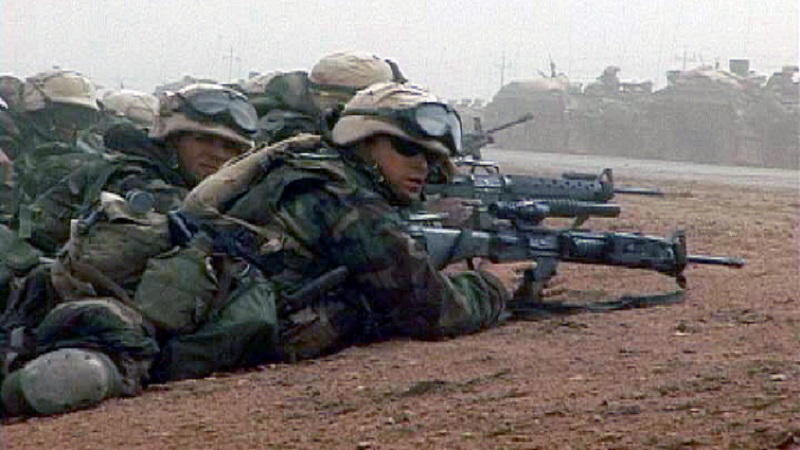Memory of the Iraq War
Al Ittihad, UAE, March 24
Twenty years ago, in March 2003, the US launched an invasion of Iraq, with the goal of overthrowing Saddam Hussein, eliminating weapons of mass destruction, and fostering a more humane and democratic nation. Today, the invasion of Iraq is widely seen as one of the most egregious mistakes in US foreign policy in recent history. Since 1941, the United States has been involved in six major wars. Of those, World War II was the most devastating and destructive. Despite the immense number of casualties and the heavy economic toll, most Americans deemed it a “just war.” Five years after the end of World War II, the Korean War, now known as the “forgotten war,” was not a decisive conflict. Yet, as it was supported by the UN Security Council, it prevented the communist regime in the North from taking over the entire Korean peninsula. Today, South Korea is one of the most prosperous nations in the world. The US military intervention in Vietnam began with limited assistance programs, but during Lyndon Johnson’s administration, hundreds of thousands of US soldiers were sent to fight in ground battles. Due to most of the recruits being inexperienced, casualties were high, and the war became increasingly unpopular. Following the election of Richard Nixon in 1968, the war escalated and spread to Cambodia. Nixon’s successor, Gerald Ford, oversaw the humiliating withdrawal from Saigon in April 1975. Following this, the Americans vowed never to fight another land war in Asia. In 1991, President George H.W. Bush spearheaded a successful operation to liberate Kuwait from Saddam Hussein’s invasion. This resulted in the destruction of major Iraqi fighting units. Despite this, Saddam Hussein continued to maintain a firm grip on power in Iraq. The period from 1991 to 2001 was the height of American global power. The Soviet Union had backed the Gulf War and subsequently disbanded, in part due to its unsuccessful war in Afghanistan. This effectively marked the end of the Cold War. Then came September 11, 2001, when the United States experienced a devastating terrorist attack. In response, the nation launched a military operation in Afghanistan to capture Osama bin Laden and topple the Taliban regime. However, the United States also decided to remain in Afghanistan to rebuild the country. Regrettably, the resources necessary to bring about this endeavor became unavailable when Washington chose to go to war with Iraq. The beginning of the Iraq War saw some success; Saddam Hussein was apprehended, and the United States assumed control of the nation. However, due to mismanagement and a series of strategic missteps, attempts to establish a representative government were unsuccessful, leading to civil war and the loss of thousands of American and Iraqi lives. Additionally, these efforts have cost countless sums of money. In 2011, the United States formally put an end to its direct military engagement in Iraq, though leaving behind special forces and aviation for the purpose of suppressing the ISIS insurgency. Furthermore, the United States’ military presence in Afghanistan continued until the abrupt withdrawal in the summer of 2021. Opposition to the wars in Iraq and Afghanistan has emboldened those who oppose US involvement in Ukraine. Critics argue that the Neoconservatives who championed the decision to invade Iraq remain influential. Additionally, a coalition of left-wing anti-war organizations and neo-isolationists within the Republican Party are using the failure of the Iraq war to challenge “the endless American wars.” The conclusion is that, so long as the United States does not have troops fighting in Ukraine, public support for President Biden’s policy of arming Ukraine will remain. Yet, if there is a significant reversal in the war and an increase in hostilities, the memories of Iraq and Afghanistan will be invoked to limit US intervention and seek a solution with Russia. –Jeffery Kemp (translated by Asaf Zilberfarb)
Give the gift of hope
We practice what we preach:
accurate, fearless journalism. But we can't do it alone.
- On the ground in Gaza, Syria, Israel, Egypt, Pakistan, and more
- Our program trained more than 100 journalists
- Calling out fake news and reporting real facts
- On the ground in Gaza, Syria, Israel, Egypt, Pakistan, and more
- Our program trained more than 100 journalists
- Calling out fake news and reporting real facts



